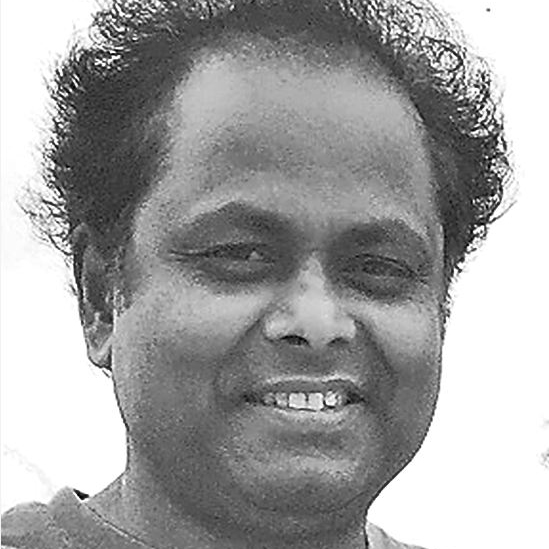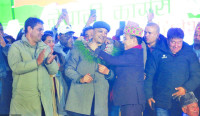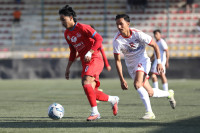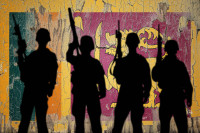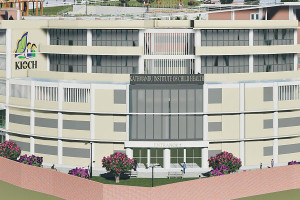Editorial
It’s not over
When Nepal should be moving ahead with all its people on board, the marginalised are still struggling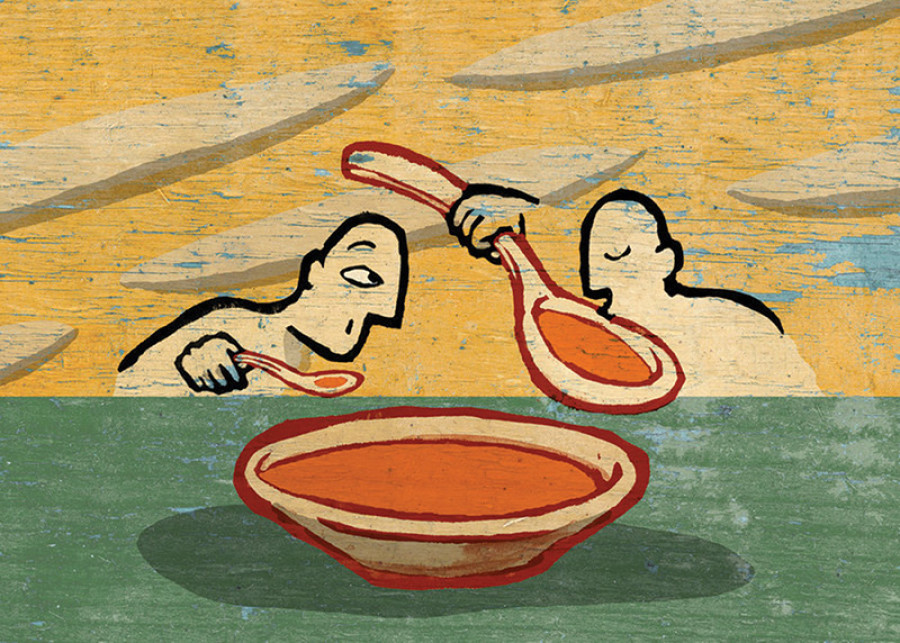
Pramod Mishra
The victory of the left alliance in the recently held federal parliament and provincial assembly elections has made constitution-loving Nepalis feel that the end of history has arrived. Francis Fukuyama had written in an essay in 1989; he later expanded this essay and published it as a book entitled The End of History and the Last Man in 1992. The essay and the book explained that with the fall of the Berlin Wall and the end of the war between communism and capitalism (both Europe-generated), history had ended and what remained was only liberal democracy as a political and cultural system and capitalism as an economic system, marching hand-in-hand into posterity. And subsequently, whenever knowledgeable people have referred to Fukuyama’s book, it’s only to make it a punching bag—to dish it out and demonstrate how wrong he was in his assessment of the unfolding future.
The fall of the Berlin wall unleashed globalisation in its immediate aftermath. And globalisation spawned two contradictory forces. On the one hand, Islamic militancy rose out of the ashes of the fight against communism (in the form of the fight against the Soviet invasion and occupation of Afghanistan); on the other, globalisation triggered the rise of China’s manufacturing-based economy without ushering in liberal democracy. And if one also accounts for India’s rise in the mix as a new alternative to the Western model of single-identity liberal democracy in a mono-culturally conceived nation-state, you have not only no end of history but the rise of a very interesting kind of history that remains quite unpredictable, with Brexit and the rise of strident nationalism in many European countries.
In Nepal, too, the victory of the left alliance doesn’t by default mean the end of history has arrived in the form of simplistic samridhi (prosperity) and vikas (development) as many have come to believe. On the contrary, I would argue that a very interesting new history has just begun—not necessarily either in the face of Biplav’s firecrackers during elections that killed one and injured a few without having much effect on the elections or in the form of CK Raut’s non-violent call for election boycott, but what happened in the election in Kailali among the Tharus.
The people’s voice
Yes, I’m talking about the overwhelming victory in the election of the fugitive hero Resham Chaudhary despite all the forces of the Nepali state—money, bureaucracy, security forces—arrayed against him. If Oli is a hero in the eyes of his Nepali-speaking countrymen (I admit that admiration for him has crossed party lines), Resham Chaudhary has become the hero of Madhesis, Janajatis and other justice seekers. If Oli has rushed to Rasuwagadhi to pay tribute to the symbolic place that brought him victory by helping him mesmerise the hill population with slogans of nationalism and patriotism, Resham Chaudhary remains a fugitive, allegedly living in India, for protection against what he believes are fraudulent charges, charges that mobilised his indigenous Tharu community to vote for him. If Oli has joined the national pantheon of PN Shah and Mahendra in the eyes of his hills admirers, Resham Chaudhary has become a Robin Hood for his admirers in the plains. Combine Resham Chaudhary’s victory from Kailali-1 with a clear victory of the Madhesi leaders like Mahanth Thakur, Upendra Yadav, Rajendra Mahato and their fellow comrades who had ignited the Madhes movement before, during and immediately after the constitution proclamation, you have an interesting dynamic emerging in the Nepali political scene. If the Rasuwagadhi border point symbolised China’s might, the blockade at the Birgunj border point demonstrated India’s geopolitical might in relation to Nepal. And if Rasuwagadhi stirred Pahadi loyalty for Oli, the Birgunj blockade and Tikapur incident stirred the Tharus and the Madhesis. In this sense, the history of struggle against Nepali state’s caste, language, hills-plains discrimination has just taken an interesting turn.
Still unequal
And that is the Nepali tragedy in the making. At a time when Nepal should be really moving ahead with its entire diverse range of people on board together, the distant thunder of the strife and struggle of, and by, the marginalised is still heard, if you have the right ears, despite the din of development and the prosperity chant of mainstream media and the left alliance. If the past 60 years (30 of Panchayat and almost 30 of multiparty system) is any guide, one can say that prosperity came to chosen Nepali homes, homes that were connected with the resource pipeline of the state. And the resources were easily open to people who were structurally empowered by Nepali state’s hill castes and Nepali language. Others became prosperous either because they were geniuses or had found connections with global forces, such as the Lahures of the former British Empire. And, now, if even the common family in the Tarai has seen some modicum of prosperity if only by Nepali standards, it’s because the family has an able-bodied migrant labourer in the Middle East or East and South East Asia.
Road building is not going to bring prosperity to Nepalis—the slogan is there to induce a mirage, as it just did during these elections—structural access to the Nepali state will. All these immature celebrations of the left alliance’s victory as a harbinger of Nepal’s running gas and roaring train are only for those who are already structural beneficiaries of the Nepali state. One would like to say otherwise but that’s the ugly truth.
So, in this post-election season of advice giving, I hope that the left alliance will have the wisdom to pass the constitution amendment bill and restructure the present provinces and address the bottom line demands of the Madhesis, Janajatis, and women before trumpeting its post-truths of cargo ships with Nepali flags on high seas, trains in the mountains and running gas in the kitchen. Otherwise, the dialectics of Oli and Resham Chaudhary will never leave Nepal alone.
Mishra is department Chair of English Studies at Lewis University in the United States




 14.12°C Kathmandu
14.12°C Kathmandu